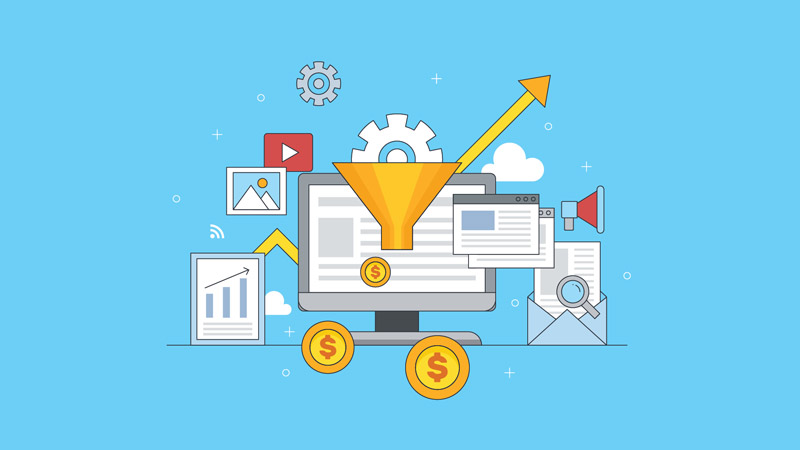Marketing has evolved significantly from traditional methods to embrace digital platforms. Digital marketing offers businesses numerous advantages, but it also comes with its own set of challenges. Understanding the pros and cons is crucial for any organization looking to leverage digital marketing effectively. Let’s delve into the various aspects.
Pros of Digital Marketing
1. Global Reach
Digital marketing enables businesses to connect with a worldwide audience regardless of their physical location. This creates limitless possibilities for expanding customer reach and establishing a stronger market presence.
2. Cost-Effective
Compared to traditional marketing methods like print or TV ads, digital marketing is often more cost-effective. Social media, email marketing, and content marketing can deliver high ROI without breaking the bank.
3. Targeted Advertising
Digital marketing allows for precise targeting based on demographics, interests, behavior, and more. This ensures that marketing efforts are directed towards the most relevant audience, thereby increasing the likelihood of conversion.
4. Measurable Results
In contrast to traditional marketing, digital marketing provides comprehensive analytics and insights. Marketers can track the performance of their campaigns in real-time, enabling them to optimize strategies for better results.
5. Brand Building and Engagement
Through social media, blogs, and other digital channels, businesses can engage with their audience on a personal level. This helps in building brand loyalty and establishing a strong online presence.
6. Boost Productivity
Digital marketing tools and platforms streamline processes, allowing marketers to accomplish tasks more efficiently. Automation of repetitive tasks frees up time for strategic planning and creative endeavors.
7. Drive Efficiency
Digital marketing enables precise targeting and optimization of campaigns based on real-time data. This efficiency ensures that resources are allocated effectively, maximizing the impact of marketing efforts.
8. Reveal Insights
Digital marketing analytics provide valuable insights into consumer behavior, preferences, and trends. Marketers can leverage this data to refine their strategies and make informed decisions that drive results.
9. Increase ROI
Digital marketing often delivers a higher return on investment (ROI) compared to traditional marketing methods. With careful planning and optimization, businesses can achieve greater results with fewer resources.
10. Create Optimized Content
Digital marketing allows for the creation of highly targeted and optimized content tailored to specific audience segments. This content resonates better with the target audience, driving engagement and conversions.
11. Personalize at Scale
Through data-driven personalization, digital marketers can deliver customized experiences to individual users at scale. Personalized content and offers enhance user engagement and build stronger relationships with customers.
12. Predictive Analysis
Advanced analytics tools enable predictive analysis, which helps marketers anticipate future trends and consumer behavior. This foresight allows businesses to stay ahead of the curve and adjust their strategies proactively.
13. Automate Tasks
Automation tools streamline various marketing tasks, such as email marketing, social media posting, and ad management. Automating tasks not only saves time but also ensures consistent and accurate execution.
Cons of Digital Marketing
1. High Competition: The digital landscape is fiercely competitive, as businesses compete for consumers’ attention. Standing out amidst the noise can be challenging, especially for smaller companies with limited resources.
2. Constantly Evolving: Digital marketing trends and algorithms are constantly changing. Keeping up with these changes requires continuous learning and adaptation, which can be time-consuming and resource-intensive.
3. Dependency on Technology: Digital marketing is heavily reliant on technology and online platforms. Any technical issues or algorithm changes can disrupt marketing efforts and affect campaign performance.
4. Information Overload: In the digital realm, consumers are bombarded with information and advertisements, leading to information overload and shorter attention spans. Cutting through the clutter to capture audience attention can be tough.
5. Privacy Concerns: With the rise of data-driven marketing, privacy concerns have become more prevalent. Strict regulations like GDPR and CCPA govern the collection and usage of consumer data, making it essential for businesses to prioritize data protection and compliance.
6. Bias: Digital marketing algorithms may inadvertently introduce bias into targeting and decision-making processes. This can result in unequal treatment of certain groups or individuals, potentially leading to ethical and reputational issues.
7. Inaccuracy: Despite the wealth of data available, digital marketing metrics may not always accurately reflect consumer behavior or campaign performance. Inaccurate data can lead to misguided decision-making and wasted resources.
8. Ethics: Digital marketing raises ethical concerns regarding the use of consumer data, privacy, and the manipulation of online behavior. Marketers must navigate ethical dilemmas surrounding issues such as targeting vulnerable populations, deceptive advertising practices, and the exploitation of personal information.
9. Data Sensitivity: Collecting and using sensitive consumer data for digital marketing purposes can raise privacy concerns and undermine trust. Marketers must be cautious when handling sensitive information such as health data, financial details, or personally identifiable information.
10. Data Security: The proliferation of data-driven marketing exposes businesses to cybersecurity risks, including data breaches, hacking, and unauthorized access. Protecting consumer data is paramount, and any security lapses can have severe consequences for both businesses and consumers.
11. Transparency: Digital marketing practices can lack transparency, especially when it comes to data collection, targeting methods, and the use of algorithms. Consumers may feel distrustful of marketing messages that they perceive as opaque or manipulative, leading to diminished brand trust and loyalty.
Final Words
Digital marketing offers unparalleled opportunities for businesses to connect with their audience, drive engagement, and achieve marketing objectives. However, it’s not without its challenges. By understanding the pros and cons, businesses can develop strategies that leverage the strengths of digital marketing while mitigating its limitations. Ultimately, success in digital marketing comes from staying informed, adapting to changes, and delivering value to consumers in a rapidly evolving digital landscape.




